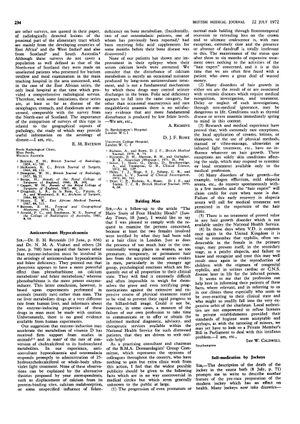Anticonvulsant Hypocalcaemia
July 1972
in “
The BMJ
”

TLDR Long-term use of seizure medications can disrupt calcium metabolism, but this can be treated with vitamin D or UV light and does not affect seizure control.
The document discusses the phenomenon of anticonvulsant hypocalcaemia, which is a disturbance in calcium metabolism caused by long-term anticonvulsant treatment. The authors, A. Richens and D. J. F. Rowe, argue against the idea that enzyme induction is the sole cause of this condition, as phenytoin has a more significant effect on calcium metabolism than phenobarbitone, despite the latter being a more potent enzyme inducer. They suggest that enzyme induction may accelerate the metabolism of vitamin D, based on studies in animals and humans. They report that anticonvulsant hypocalcaemia and osteomalacia respond well to 25-hydroxycholecalciferol or ultraviolet light treatment. The authors also note that correcting serum calcium levels does not improve epilepsy, indicating that the calcium metabolism disturbance is a side effect of anticonvulsant treatment rather than a mechanism for controlling seizures. Additionally, they mention that folic acid deficiency, which can occur alongside hypocalcaemia, does not seem to cause significant issues beyond occasional macrocytosis and rare megaloblastic anaemia.




